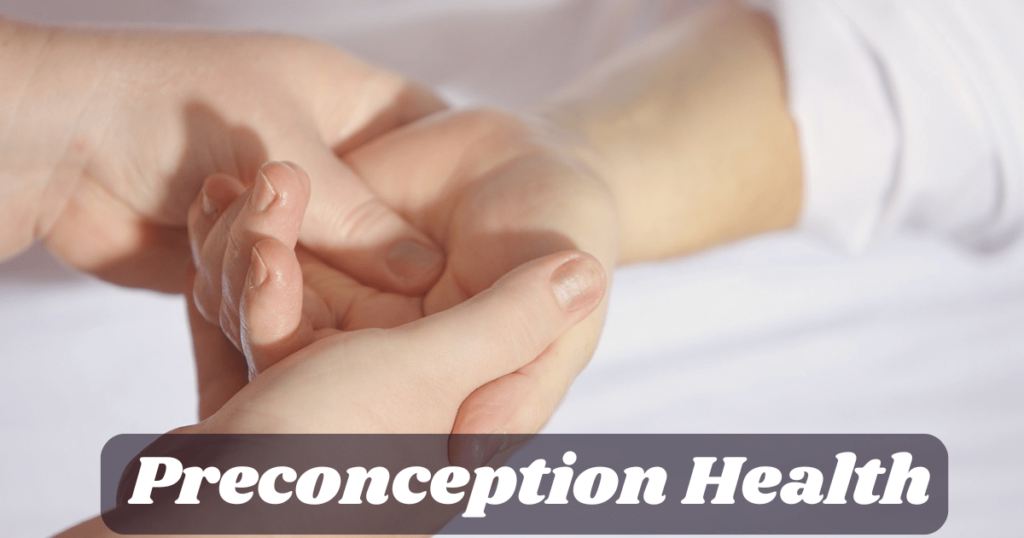"Top 5 Ways to Avoid Diabetic Amputations: Expert Tips and Prevention Strategies"

Introduction
When it comes to getting pregnant, many people are concerned with what they need to do immediately such as seeing a doctor or buying the best crib. However, one of the most important aspects of preconception health is often missed out on which is nutrition. The right diet can have a major impact on fertility by increasing chances of getting pregnant and laying groundwork for a healthy pregnancy.
Understanding Fertility and Nutrition
What is Fertility?
Fertility means being able to become pregnant. For females, this includes the health and functioning of the reproductive system including state of the ovaries and uterus. For males, this encompasses sperm production and quality. Both partners must be in good health for pregnancy to occur.
How Does Nutrition Affect Fertility?
Nutrition has an influence over hormonal balance, reproductive wellbeing and general vitality that serves an important role in fertility. Properly balanced diet aids in regulation of menstrual cycle, promotes proper sperms growth as well as preparing body for healthy pregnancy.
Key Nutrients for Boosting Fertility
Folic Acid
Folic acid is an essential nutrient needed to attain fertility because it is required for DNA synthesis and cell division.Women intending to conceive should commence taking folic acid supplements before becoming pregnant so as to minimize neural tube defects risks.
Iron
Iron assists ovulation while maintaining normal blood levels necessary during pregnancy period. Iron deficiency can be prevented through consumption of iron-rich foods like spinach or lean meats.
Omega-3 Fatty Acids
Omega-3 fatty acids increase hormone levels leading to better egg quality. Incorporating foods such as flaxseeds, walnuts or fatty fish in your menu may benefit you.
Vitamin D
Reproductive health requires vitamin D which supports optimal ovarian function hence improved rate of fertility. Sunlight exposure also guarantees adequate supplies from oily fish or fortified dairy products into your system.
Antioxidants
Fertility is affected by oxidative stress, which antioxidants counteract. Fruits and vegetables that contain vitamins E and C are significant for the protection of reproductive cells.
Building a Fertility-Friendly Diet
Incorporating Whole Foods
Whole foods such as fruits, vegetables, and whole grains are packed with essential nutrients and fiber, which support overall health and fertility. Aim to fill your plate with a variety of colorful, nutritious options.
Lean Proteins
Lean proteins from sources like chicken, turkey, and beans provide essential amino acids for hormone production and reproductive health. They also assist with blood sugar management.
Healthy Fats
Healthy fats, such as avocados, nuts and olive oil, are important for hormone balance. Including these fats in your diet supports reproductive function and overall health.
Hydration
Staying hydrated is very important for reproductive function. Adequate hydration helps maintain the health of your reproductive organs and supports overall bodily function.
Foods to Include in Your Diet
Leafy Greens
Leafy greens like spinach and kale are rich in folic acid, iron and antioxidants, making them a valuable addition to a fertility-friendly diet.
Nuts and Seeds
Nuts and seeds, including almonds, walnuts, and flaxseeds, provide healthy fats and essential nutrients that support reproductive health.
Berries
Berries are high in antioxidants and vitamins, which help reduce oxidative stress and overall fertility.
Fish
Fish such as salmon and sardines are excellent sources of omega-3 fatty acids, which are beneficial for hormone production and reproductive health.
Foods to Avoid
Processed Foods
Processed foods often contain unhealthy fats, added sugars, and artificial additives that can negatively impact fertility. Choose whole, natural foods instead.
High-Sugar Foods
High sugar consumption can lead to hormonal imbalances and insulin resistance, which can affect fertility. Choose healthy alternatives to satisfy your sweet tooth.
Excessive Caffeine
High levels of caffeine consumption have been linked to decreased fertility. Limiting caffeine intake is advised to increase the chances of conceiving.
Additional Lifestyle Factors
Maintaining a Healthy Weight
Being underweight or overweight can affect hormonal balance and ovulation. A balanced diet and frequent exercise will help you reach your goal weight.
Regular Exercise
Regular physical activity supports overall health and can improve fertility. Aim for moderate exercise, such as walking or cycling, several times a week.
Managing Stress
Prolonged stress can disrupt ovulation and the balance of hormones. Include stress-relieving practices in your regimen, such as yoga, meditation, or deep breathing exercises.
Supplements to Consider
Prenatal Vitamins
Prenatal vitamins are designed to provide essential nutrients during pregnancy and lactation. Look for supplements that contain folic acid, iron and other important nutrients.
Specific Nutrient Supplements
Additional supplements may be needed if you have specific deficiencies or dietary restrictions. Consult a healthcare provider about what is best for your needs.
Consulting with a Healthcare Provider
A healthcare provider can make personalized recommendations based on your health history and nutritional needs. Regular checkups and fertility tests can help identify any underlying problems and guide you toward a healthy pregnancy plan.
Conclusion
Improving reproductive health through food involves more than just eating some healthy foodsIt requires an integrated strategy, which can be accomplished by combining lifestyle modifications, a healthy diet, and frequent medical visits. By concentrating on critical nutrients while making informed choices in terms of what you eat; your fertility will hike significantly thereby preparing your body for childbearing.
FAQs
Ideally, start focusing on your diet at least three to six months before trying to conceive to ensure your body is in optimal health.
Absolutely! Men’s fertility can be improved with a diet rich in antioxidants, healthy fats, and lean proteins, which support sperm quality and overall reproductive health.
While no single food will instantly boost fertility, consistently including nutrient-dense foods like leafy greens, nuts, and fish can significantly improve reproductive health over time.
Vitamin deficiencies can present with a variety of symptoms, but a medical professional can run blood tests to see if you require any particular supplements.
Yes, fertility supplements can complement a healthy diet, especially if you have specific deficiencies. Always consult with a healthcare provider before starting any new supplements.
